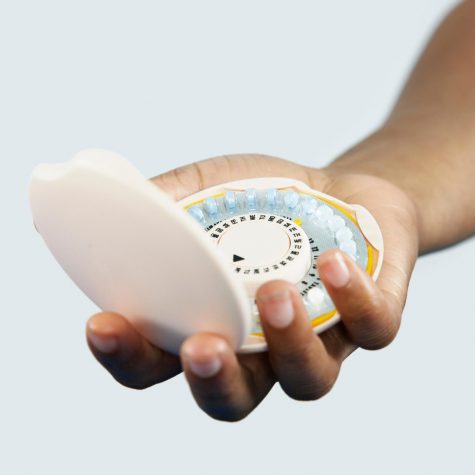Understanding hormonal contraceptives one story at a time
February 12, 2021

While hormonal contraceptives are often misunderstood as being used only for sex, they are actually used for a variety of reasons.
Lucy Polkinghorne, a sophomore creative writing major, said they got on birth control to regulate their period.
“If I ever mention that I’m on birth control, it instantly is a sexual thing to a lot of people,” Polkinghorne said. “But I started when I was 14, so it wasn’t a sexual thing. I still don’t think it is a sexual thing.”
Polkinghorne said they have experienced some weight gain on the pill but have overall had a positive experience.
“Having control over my body … allowed me to connect to it better, and it really made me develop a stronger relationship with myself,” they said.
According to Planned Parenthood, hormonal contraceptives contain synthetic progestin, or both estrogen and progestin—hormones that can cause weight gain, nausea, acne, mood changes, irregular periods, decreased sexual desire and sore breasts, among other symptoms.
Methods of hormonal contraception include the pill, the patch, the shot, the vaginal ring and long-acting reversible contraceptives (LARCs) such as intrauterine devices (IUDs) and the Nexplanon implant.

From 2017 to 2019, 19.5% of women ages 15 to 19 used the pill compared to 21.6% of women ages 20 to 29, according to the Centers for Disease Control and Prevention. A total of 13.7% of women between the ages of 20 to 29 used LARCs and 5.8% of women ages 15 to 19.
Ella Bondy, a sophomore fashion design major, uses Mirena, a hormonal IUD, and did not initially get it for birth control purposes.
Bondy has hemophobia, which is the persistent fear of blood, and said getting the IUD completely stopped their period.
Yvonne Oldaker, associate medical director at Planned Parenthood of Illinois, said there are numerous benefits of hormonal contraceptives that are personalized to the patient and what they hope to use it for, such as alleviating people’s pain during periods.
“Generally there is a birth control that is safe for somebody regardless of their medical history—there’s even birth control that is not hormonal,” Oldaker said.
For Bondy, getting an IUD impacted their hormones. Initially, they often cried at little things and had less patience.
“That’s something I definitely wish I’d thought about a little more before I got my IUD, to know that it wasn’t just my body that was going to change, [but] my emotions with it,” Bondy said.
Oldaker said contraceptives affect everyone differently.
“There’s [contraceptives] that are better for [someone] that might not be better for another person,” Oldaker said. “So really having that ability to choose what is appropriate for [your] medical history and [your] lifestyle is a key to making contraception accessible.”
Julia Ravenscroft, a junior acting major, uses the Nexplanon implant instead of the pill because the pill can increase the risk of blood clots, and her family has a medical history of blood clotting.
Ravenscroft got the implant in 2019 and said her period cramps used to be “incapacitating,” but have since gotten better.
While hormonal birth control among teens and young women has become increasingly normalized since the Food and Drug Administration approved the pill in the 1960s, the only common birth control methods for men are condoms and vasectomies.
“I wish that there were more male versions … but for some reason people are way more comfortable monitoring and controlling women’s bodies than men’s,” Ravenscroft said.
According to a BBC article, a male birth control pill passed initial safety tests in 2019, but it could still take another decade to reach the market.
Some scientists have also studied a LARC for males, but discontinued the second phase due to reported side effects of “mood disorders, depression and erectile dysfunction,” according to BBC.
Bondy said getting on birth control is a big decision, but it is not always something to fear.
“I wish people would understand that [getting on birth control] is a life altering decision, but it’s not going to completely change the course of your life because most birth controls are completely reversible,” Bondy said.







